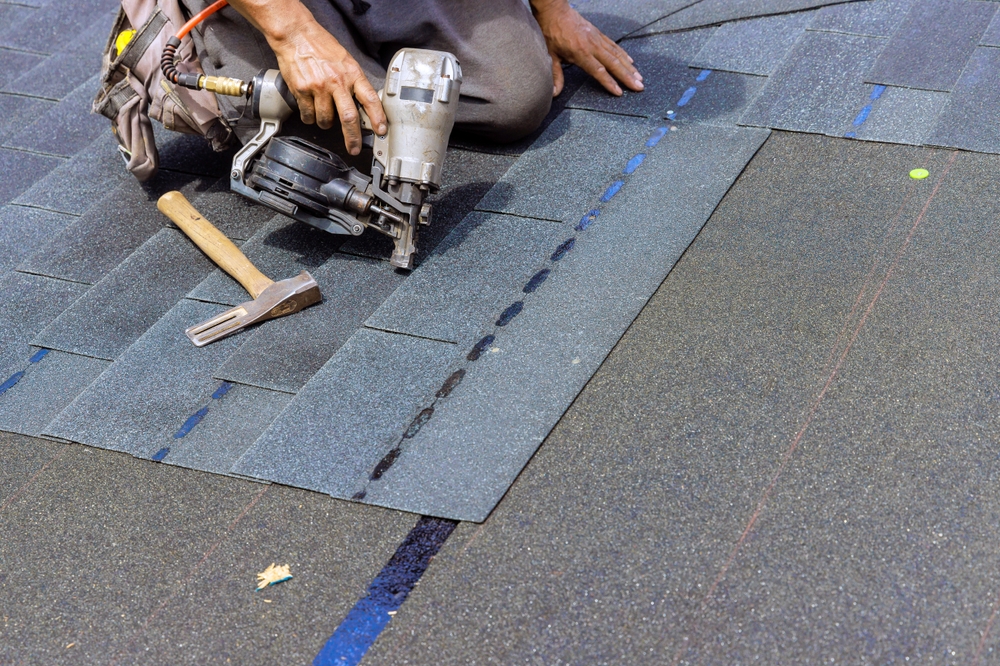Introduction
Roofing is one of the most critical components of any structure, offering protection from the elements and contributing to the overall energy efficiency and structural integrity of a home. In Orlando, Florida, roofing projects are subject to stringent building codes and regulations that ensure safety, durability, and compliance with state and local standards.
Understanding these regulations is essential for homeowners considering roof repairs, replacements, or new installations. This comprehensive guide will cover the key building codes, permit requirements, and compliance considerations that Orlando homeowners must be aware of when undertaking a roofing project.
1. The Importance of Roofing Regulations in Orlando
Why Building Codes Matter
Building codes serve several essential purposes:
- Safety: Ensuring roofs can withstand hurricanes, high winds, and heavy rains common in Florida.
- Energy Efficiency: Encouraging sustainable roofing materials and designs to lower energy consumption.
- Structural Integrity: Preventing premature roof failures due to poor workmanship or substandard materials.
- Legal Compliance: Avoiding fines, penalties, or forced modifications due to non-compliance.
Florida’s Unique Climate and Roofing Challenges
Orlando’s climate presents distinct challenges for roofing projects:
- Hurricane Season: Florida experiences hurricanes and strong storms, making wind-resistant roofing materials a necessity.
- High Temperatures and Humidity: Prolonged sun exposure can cause wear and tear on roofing materials.
- Heavy Rainfall: Frequent rain necessitates efficient drainage systems to prevent leaks and structural damage.
2. Key Roofing Building Codes in Orlando
Roofing Services Orlando regulations are based on the Florida Building Code (FBC), which is updated every three years. Orlando follows the state regulations while incorporating local amendments that cater to the city’s unique weather conditions.
2.1 Florida Building Code (FBC)
The Florida Building Code (FBC), 8th Edition (2023), is the latest iteration governing construction projects across the state, including roofing.
Wind Resistance Requirements
- Orlando falls under a High-Velocity Wind Zone (HVWZ).
- Roofs must withstand wind speeds up to 130 mph.
- Roof coverings should be tested and approved under the Florida Product Approval System.
Underlayment Standards
- The FBC requires two layers of underlayment or a self-adhering membrane for added moisture resistance.
- Roofing materials must comply with ASTM D226 and ASTM D4869 standards.
Roof Decking and Fastening
- Roof decking must be securely fastened using ring-shank nails rather than traditional staples.
- Decking materials should be at least 7/16-inch thick plywood or OSB (Oriented Strand Board).
Secondary Water Barrier
- To enhance water resistance, the code requires a self-adhering underlayment or foam adhesive tape over decking joints.
Slope and Drainage Requirements
- Low-slope roofs (below 2:12 pitch) require a fully adhered membrane system.
- Adequate drainage systems must be installed to prevent water pooling.
3. Roofing Permit Requirements in Orlando
Homeowners and contractors must secure a permit before starting any roofing project in Orlando. The City of Orlando’s Permitting Services enforces these requirements.
3.1 When is a Roofing Permit Required?
A roofing permit is required for:
- Full roof replacements
- New roof installations
- Major repairs involving structural components
- Altering more than 25% of an existing roof
- Re-roofing projects in hurricane-prone areas
3.2 Steps to Obtain a Roofing Permit
- Application Submission
- Homeowners or licensed contractors must submit a roofing permit application to the City of Orlando Building Department.
- The application includes:
- Project scope
- Roofing materials and design plans
- Contractor’s license details
- Plan Review and Approval
- The city reviews the application for compliance with FBC and local amendments.
- For larger projects, engineering assessments may be required.
- Permit Fee Payment
- Fees vary based on roof size and project complexity. Typically, residential roofing permits cost between $200 to $500.
- Inspections
- Permitted roofing projects require two main inspections:
- In-progress inspection (before installing roofing materials)
- Final inspection (after project completion)
- Permitted roofing projects require two main inspections:
- Permit Closure
- The city issues a certificate of compliance upon passing all inspections.
Also Read: Eco-Friendly Roofing Options for Orlando Residents
4. Common Roofing Materials and Their Compliance Considerations
Selecting the right roofing material is crucial for both compliance and durability. Orlando Roofing Contractors must choose materials approved under the Florida Product Approval System.
4.1 Asphalt Shingles
- Most commonly used due to affordability and ease of installation.
- Must be Class A fire-rated and wind-resistant up to 130 mph.
4.2 Metal Roofing
- Highly durable with a lifespan of 40-70 years.
- Requires proper fastening systems and must be resistant to wind uplift.
4.3 Clay and Concrete Tiles
- Common in Mediterranean-style homes.
- Requires reinforced roof trusses due to additional weight.
4.4 Flat Roof Systems
- Popular in commercial buildings.
- Must include waterproof membranes such as TPO or modified bitumen.
5. Energy Efficiency and Sustainability Requirements
Florida mandates energy-efficient roofing systems under the Florida Energy Code.
5.1 Cool Roof Requirements
- Light-colored, reflective roofs are encouraged to reduce heat absorption.
- Must meet the Solar Reflectance Index (SRI) of at least 78.
5.2 Green Roofs and Solar Panels
- Orlando encourages green roofing systems to improve insulation.
- Solar panel installations must comply with FBC Section 1511.
5.3 Insulation Standards
- Attic insulation must meet R-30 rating for energy efficiency.
6. Hiring a Licensed Roofing Contractor in Orlando
6.1 Why Hire a Licensed Contractor?
- Ensures compliance with FBC and local codes.
- Reduces the risk of substandard workmanship.
- Contractors carry liability insurance and worker’s compensation.
6.2 Checking a Contractor’s License
- Homeowners should verify contractor licenses through:
- Florida Department of Business & Professional Regulation (DBPR)
- City of Orlando Building Department
6.3 Red Flags to Avoid
- Unlicensed contractors offering cheaper rates.
- Lack of proper documentation and insurance.
- Refusal to provide a written contract.
7. Consequences of Non-Compliance
Failing to adhere to Orlando’s roofing regulations can result in:
- Fines and legal penalties
- Delays or halts in construction
- Voided insurance claims
- Forced roof removal or repairs
8. Conclusion
Understanding Orlando’s roofing requirements is vital for homeowners planning a roofing project. Compliance with the Florida Building Code, obtaining the proper permits, choosing the right materials, and hiring licensed contractors ensure that your roof remains durable, safe, and legally sound.
By following these guidelines, homeowners can avoid costly mistakes, enhance their property value, and ensure long-term protection against Florida’s unpredictable weather.
Whether you’re replacing a roof or installing a new one, staying informed about Orlando’s roofing codes and regulations is the key to a smooth and successful roofing project.



